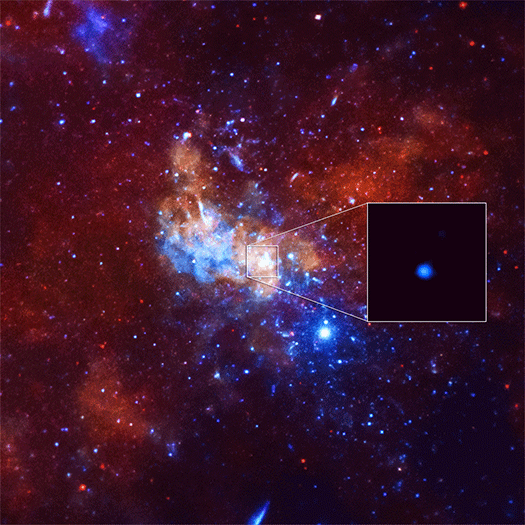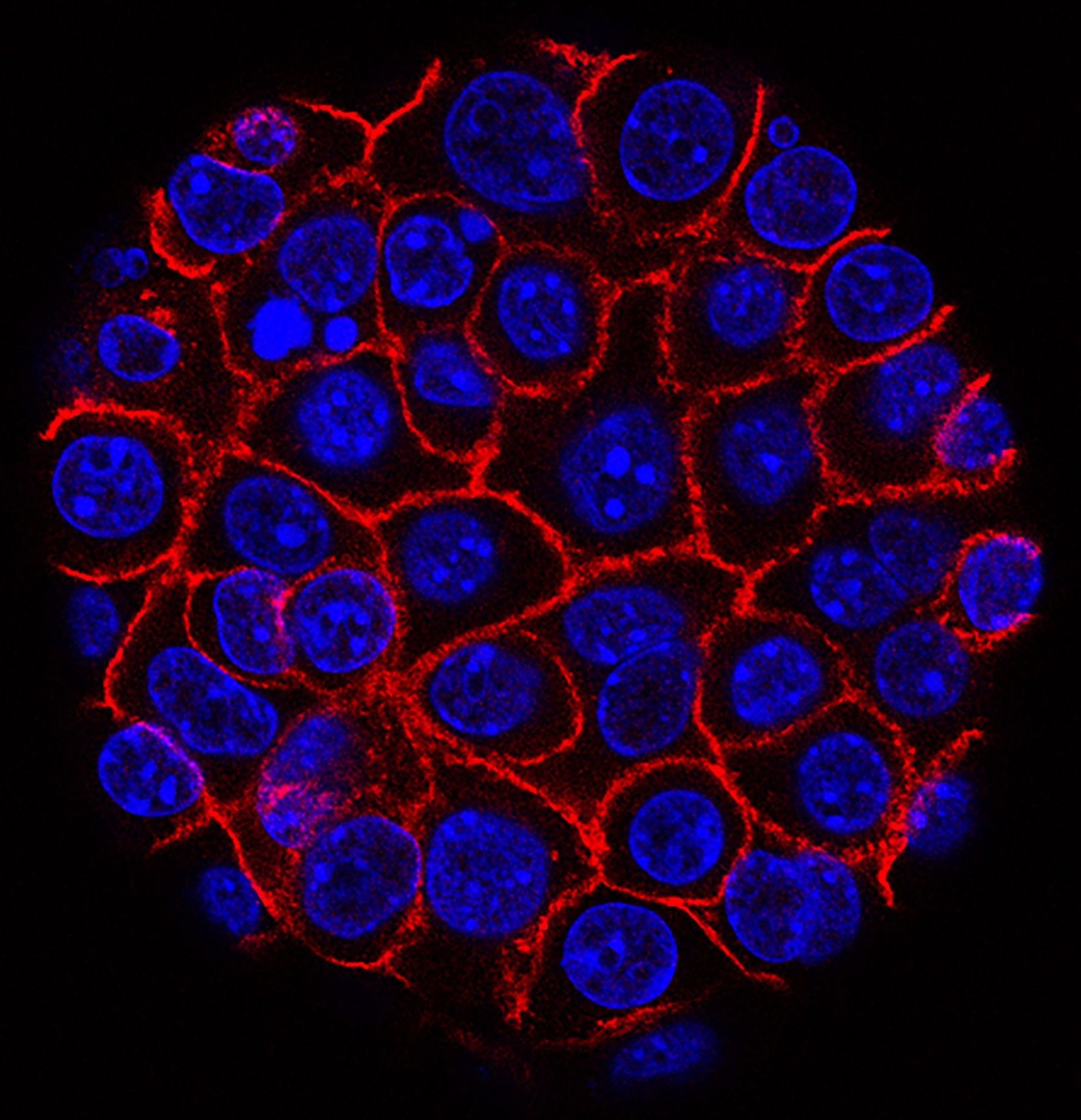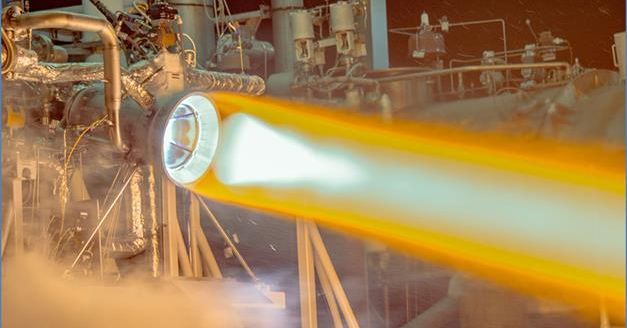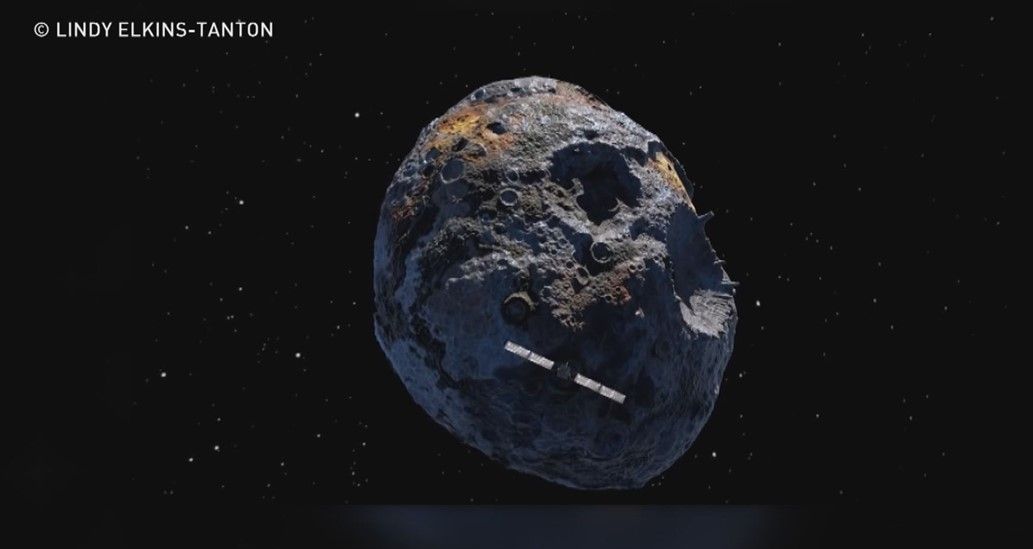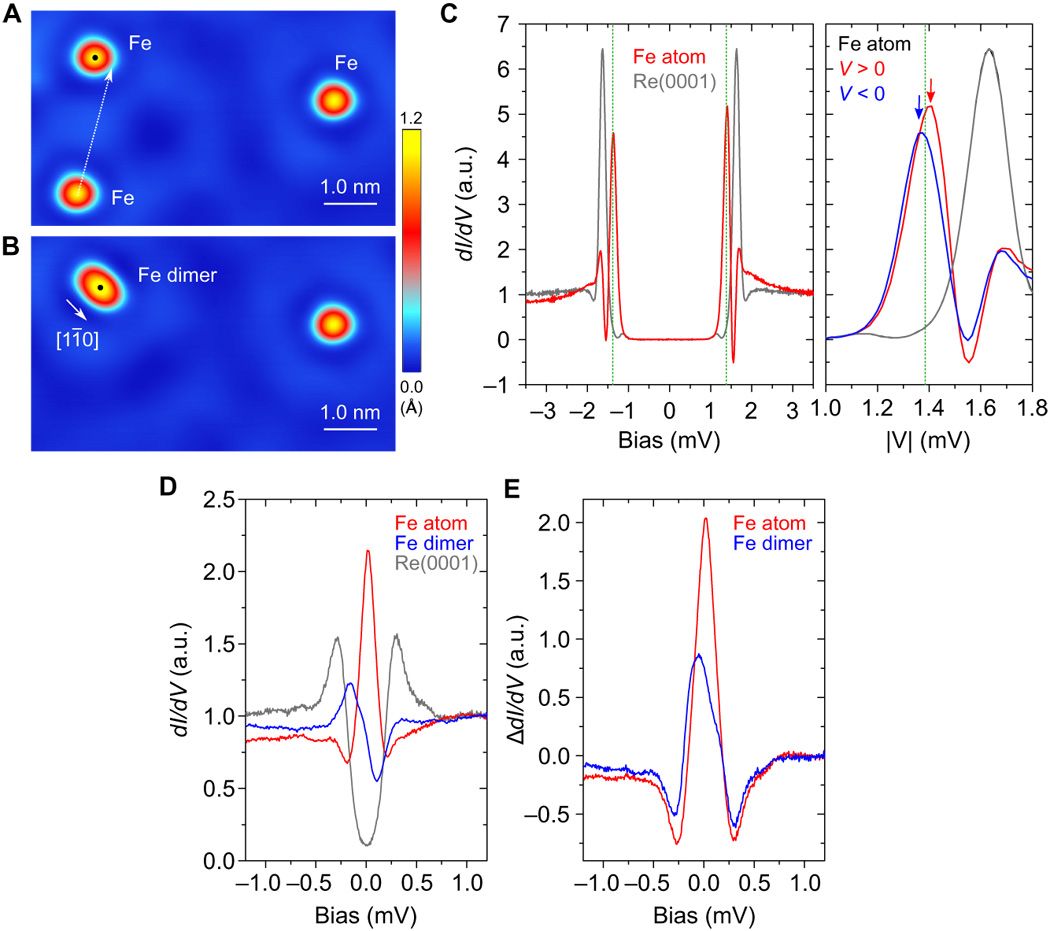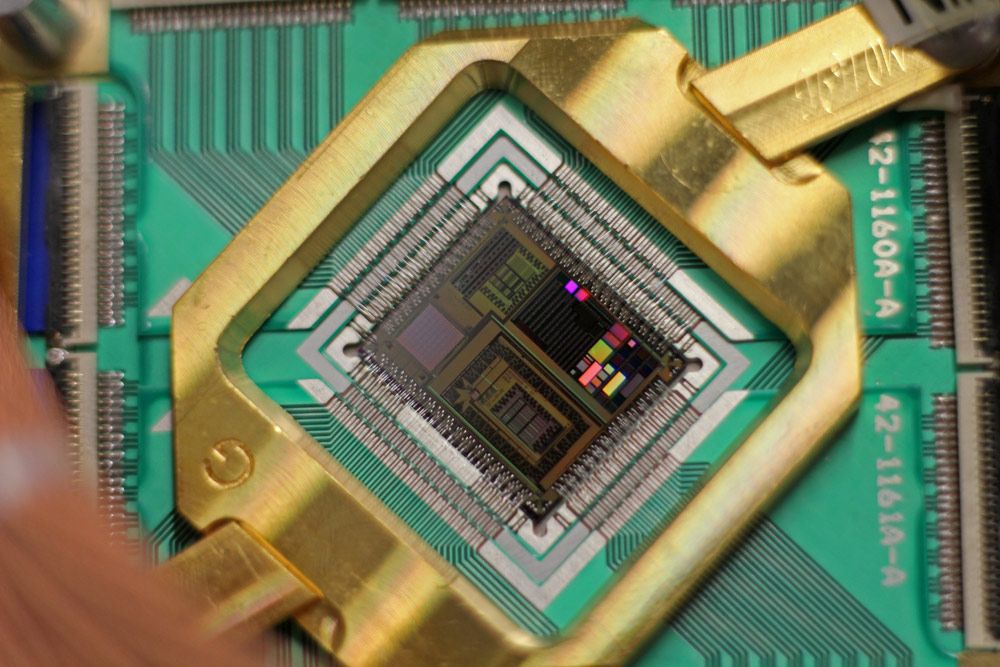Page 9732
May 12, 2018
NASA plans to send mini-helicopter to Mars
Posted by Michael Lance in categories: drones, robotics/AI, space travel
The US space agency said Friday it plans to launch the first-ever helicopter to Mars in 2020, a miniature, unmanned drone-like chopper that could boost our understanding of the Red Planet.
Known simply as “The Mars Helicopter,” the device weighs less than four pounds (1.8 kilograms), and its main body section, or fuselage, is about the size of a softball.
It will be attached to the belly pan of the Mars 2020 rover, a wheeled robot that aims to determine the habitability of the Martian environment, search for signs of ancient life, and assess natural resources and hazards for future human explorers.
Continue reading “NASA plans to send mini-helicopter to Mars” »
May 12, 2018
Cancer treatment changes cancer cells into normal ones
Posted by Manuel Canovas Lechuga in category: biotech/medical
BGN Technologies, the technology-transfer company of Ben-Gurion University of the Negev (BGU), announced that a research group led by Prof. Varda Shoshan-Barmatz of the BGU Department of Life Sciences and the National Institute for Biotechnology in the Negev, is developing a new molecule to treat cancer that inhibits cancer cell growth and changes these cells back to normal ones.
“Although this is in the early stages, we are excited with results that demonstrate this novel molecule’s potential for cancer treatment,” says Prof. Shoshan-Barmatz. “Basically, we’ve discovered a code for reprograming cancer cells that causes them to lose their oncogenic features.”
The novel treatment is based on siRNA (small interfering ribonucleic acid), which silences expression of the mitochondrial gatekeeper protein, VDAC1. This protein is highly overexpressed in many solid and non-solid tumors and is crucial for supplying the high energy demands of malignant cells.
May 12, 2018
La conquista de la muerte
Posted by Zoltan Istvan in categories: ethics, life extension, lifeboat, transhumanism

This week RT en Español aired a half hour show on life extension and #transhumanism on TV to millions of its #Spanish viewers. My #ImmortalityBus and work was covered. Various Lifeboat Foundation members in this video: Give it a watch:
La longevidad, la inmortalidad… Temas que nunca han dejado a nadie indiferente. Ahora algunos científicos aseguran que la inmortalidad es técnicamente alcanzable en un futuro cercano. Pero al mismo tiempo surgen preguntas de carácter moral e incluso filosófico: ¿qué significa alcanzar la inmortalidad para cada uno de nosotros? Además, en una sociedad consumista y de empresas transnacionales como la nuestra, suena poco convincente que la inmortalidad pueda llegar a ser accesible para todos.
May 12, 2018
The Vision Fund model is disruptive, then
Posted by Derick Lee in categories: finance, innovation
The Vision Fund model is disruptive, then. But is it good for innovation and consumers? Mr Son’s project certainly has its attractions. It is shaking up the cosy world of Silicon Valley venture capital. And it may nurture competition against the tech giants. The fund offers founders of startups an alternative to cashing out to the likes of Google, Facebook and Amazon; its massive chequebook also gives those entrepreneurs a better shot at competing with the titans. The fund may perform a similar function in China, where nearly half of all unicorns are by now backed by one of the country’s four tech giants, Baidu, Alibaba, Tencent or
京东JD.COM-专业的综合网上购物商城,销售家电、数码通讯、电脑、家居百货、服装服饰、母婴、图书、食品等数万个品牌优质商品.便捷、诚信的服务,为您提供愉悦的网上购物体验!
May 11, 2018
ULA picks an engine for its next generation rocket — just not the main one
Posted by Genevieve Klien in category: transportation
ULA has picked the RL10, an engine manufactured by Aerojet Rocketdyne, to propel the upper stage of its next generation rocket, the Vulcan It’s a big hardware decision for ULA, but the company has yet to make a much more anticipated choice for the vehicle: which will be the main engine?
May 11, 2018
Tempe scientist 2nd woman in the world to lead deep-space mission
Posted by Genevieve Klien in categories: robotics/AI, space
TEMPE, Ariz. — A Tempe woman could not believe it when she got the phone call.
NASA was on the other end of the line. Lindy Elkins-Tanton, a planetary scientist with the School of Earth and Space Exploration at Arizona State University, learned she would be leading a deep-space mission–the Psyche Mission.
Her objective is to send a robotic probe to a metal asteroid called Psyche.
Continue reading “Tempe scientist 2nd woman in the world to lead deep-space mission” »
May 11, 2018
Toward tailoring Majorana bound states in artificially constructed magnetic atom chains on elemental superconductors
Posted by Genevieve Klien in categories: computing, particle physics, quantum physics
Realizing Majorana bound states (MBS) in condensed matter systems is a key challenge on the way toward topological quantum computing. As a promising platform, one-dimensional magnetic chains on conventional superconductors were theoretically predicted to host MBS at the chain ends. We demonstrate a novel approach to design of model-type atomic-scale systems for studying MBS using single-atom manipulation techniques. Our artificially constructed atomic Fe chains on a Re surface exhibit spin spiral states and a remarkable enhancement of the local density of states at zero energy being strongly localized at the chain ends. Moreover, the zero-energy modes at the chain ends are shown to emerge and become stabilized with increasing chain length. Tight-binding model calculations based on parameters obtained from ab initio calculations corroborate that the system resides in the topological phase. Our work opens new pathways to design MBS in atomic-scale hybrid structures as a basis for fault-tolerant topological quantum computing.
Majorana fermions —particles being their own antiparticles—have recently attracted renewed interest in various fields of physics. In condensed matter systems, Majorana bound states (MBS) with a non-Abelian quantum exchange statistics have been proposed as a key element for topological quantum computing (2–4). One of the most promising platforms to realize MBS are one-dimensional (1D) helical spin systems being proximity-coupled to a conventional s-wave superconductor (5–9). In such a surface-confined system, the MBS can directly be investigated by local probe techniques such as scanning tunneling microscopy/spectroscopy (STM/STS). Previously reported experiments aiming at the direct visualization and probing of the MBS have focused on self-assembled magnetic chains on superconducting Pb substrates (10–15).
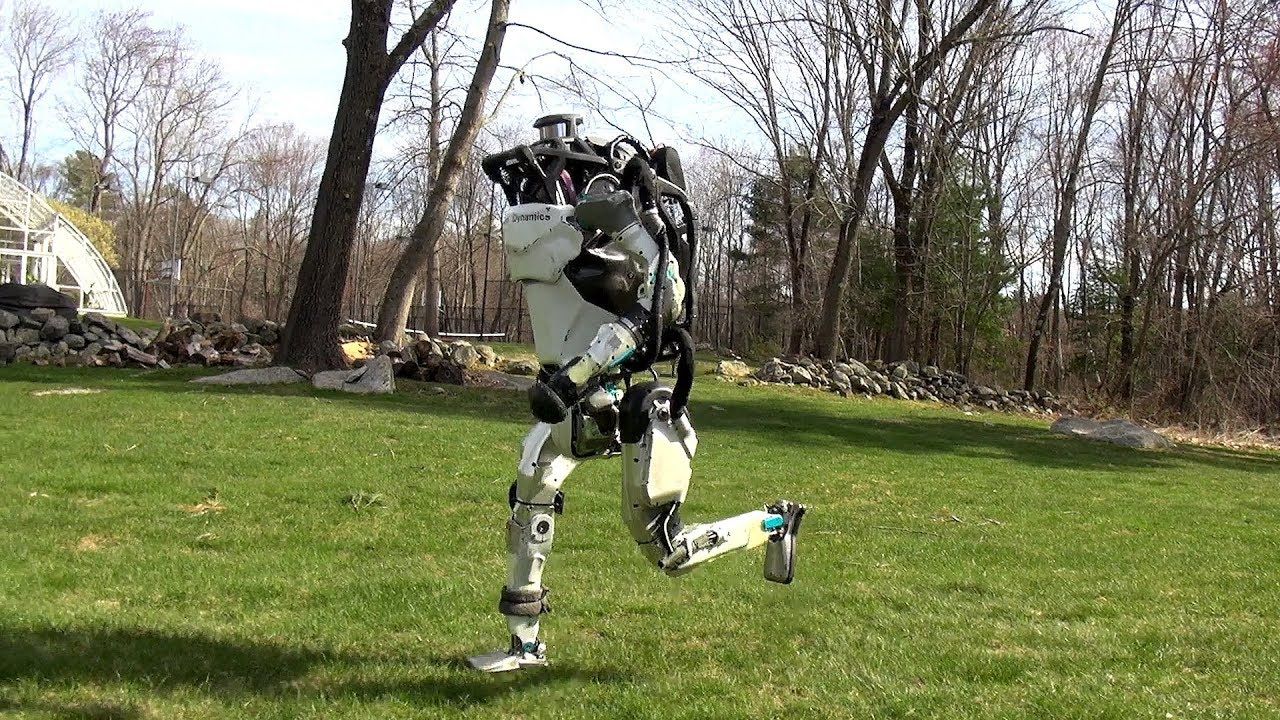
Amazing. They have improved the legs and arms. Main thing, it still needs a set of hands, the torso needs to get shrunk down a lot, try to eliminate all of those whistling and cranking noises completely. And then play around with trying to put it in rubber skin, and putting the Sophia head on to it.
